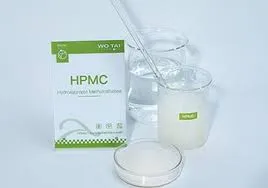
Dec . 12, 2024 22:09 Back to list
HPMC Hydroxypropyl Methyl Cellulose Supplier for Versatile Applications and Quality Solutions
The Role of HPMC in Modern Industries An Overview of Hydroxypropyl Methyl Cellulose Manufacturers
In the realm of various industries such as pharmaceuticals, construction, food, and personal care, Hydroxypropyl Methyl Cellulose (HPMC) has emerged as a critical polymer, widely appreciated for its versatility and effectiveness. This non-ionic cellulose ether is derived from natural cellulose and modified to provide unique properties that are beneficial across numerous applications. Understanding the role of HPMC and the significance of its manufacturers is essential for businesses seeking reliable and high-quality materials.
What is HPMC?
Hydroxypropyl Methyl Cellulose is a semi-synthetic polymer that features both hydrophilic and hydrophobic properties. Its chemical modifications allow it to dissolve in water, forming a clear, viscous solution. HPMC is favored for its excellent film-forming abilities, thickening, stabilizing, and emulsifying properties. Additionally, it is non-toxic and has a good tolerance level, making it suitable for a wide array of applications.
Pharmaceutical Applications
In the pharmaceutical sector, HPMC is primarily utilized as a binder and a coating agent in tablets. Its use aids in the controlled release of medications, ensuring that medicinal compounds are released in a timely manner, optimizing therapeutic effects. Furthermore, HPMC doesn't interact adversely with active pharmaceutical ingredients, which is a critical factor in formulation development. Its utilization in the production of ophthalmic solutions and gels highlights its importance in healthcare, ensuring formulations maintain their viscosity and stability throughout their shelf life.
Construction Industry
In construction, HPMC finds its place as a crucial additive in cement and gypsum-based materials. It enhances the workability and adhesion of mortars and concrete, allowing for better application and finish. As a water-retention agent, HPMC prevents rapid evaporation of water from the mixture, which is vital in ensuring the strength and durability of construction materials. Manufacturers producing HPMC for this sector must adhere to stringent quality standards, as the performance of construction materials heavily relies on the properties imparted by HPMC.
hpmc-hydroxypropyl methyl cellulose manufacturer

Food Industry
In the food sector, HPMC serves various functional roles, including as a thickener, emulsifier, and stabilizer in sauces, dressings, and dairy products. Its ability to improve texture and viscosity without altering the flavor profile of the food makes it an advantageous ingredient. Additionally, as consumers increasingly demand cleaner labels, HPMC's non-toxic nature and derived status from cellulose bolster its appeal as a food additive.
Personal Care and Cosmetics
Hydroxypropyl Methyl Cellulose is also used extensively in personal care products, including lotions, creams, and gels. It acts as a thickening agent and improves the texture of formulations, providing a pleasant sensory experience for users. HPMC offers skin moisturizing properties and serves as a film-forming agent, delivering a smooth application. As the beauty and personal care industry evolve, manufacturers are continuously exploring innovative formulations involving HPMC to meet consumer demands.
Selecting the Right HPMC Manufacturer
When choosing an HPMC manufacturer, several factors should be considered. Quality assurance and compliance with industry standards play significant roles in ensuring the product's reliability. Manufacturers should possess certifications such as ISO or cGMP, demonstrating their commitment to quality production practices. Additionally, the ability to offer tailored solutions based on specific application needs can set a manufacturer's product apart in the market.
Conclusion
Hydroxypropyl Methyl Cellulose has proven to be an invaluable ingredient in various industries due to its multifaceted properties and wide-ranging applications. As manufacturers strive to meet the evolving needs of various sectors, the demand for high-quality HPMC continues to grow. Understanding the role, applications, and selection criteria of HPMC manufacturers is essential for businesses aiming to leverage this versatile polymer effectively. As industries innovate and expand, HPMC will undoubtedly remain at the forefront, contributing to advancements across multiple fields while ensuring product quality and consumer satisfaction.
-
Versatile Hpmc Uses in Different Industries
NewsJun.19,2025
-
Redispersible Powder's Role in Enhancing Durability of Construction Products
NewsJun.19,2025
-
Hydroxyethyl Cellulose Applications Driving Green Industrial Processes
NewsJun.19,2025
-
Exploring Different Redispersible Polymer Powder
NewsJun.19,2025
-
Choosing the Right Mortar Bonding Agent
NewsJun.19,2025
-
Applications and Significance of China Hpmc in Modern Industries
NewsJun.19,2025







